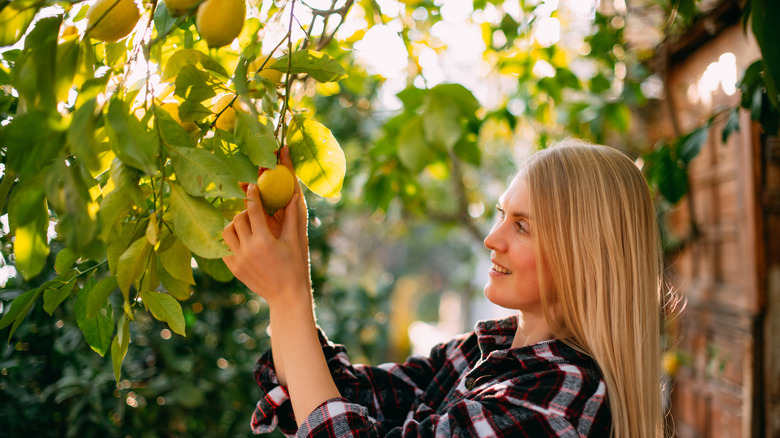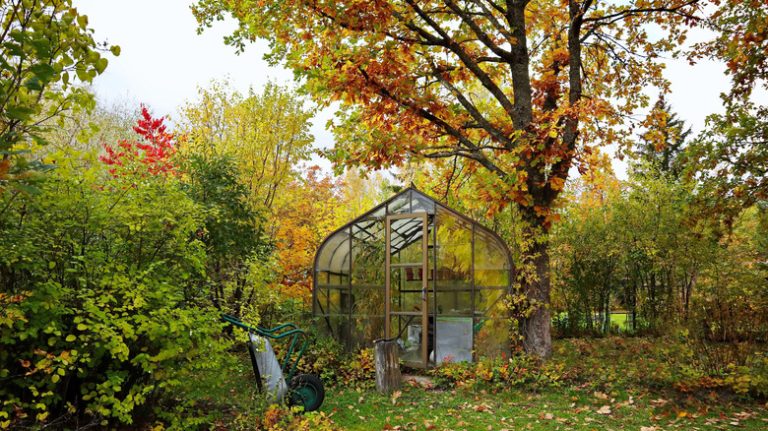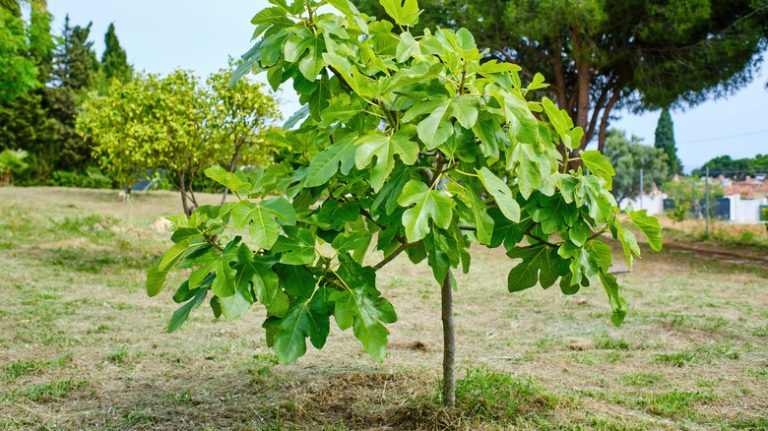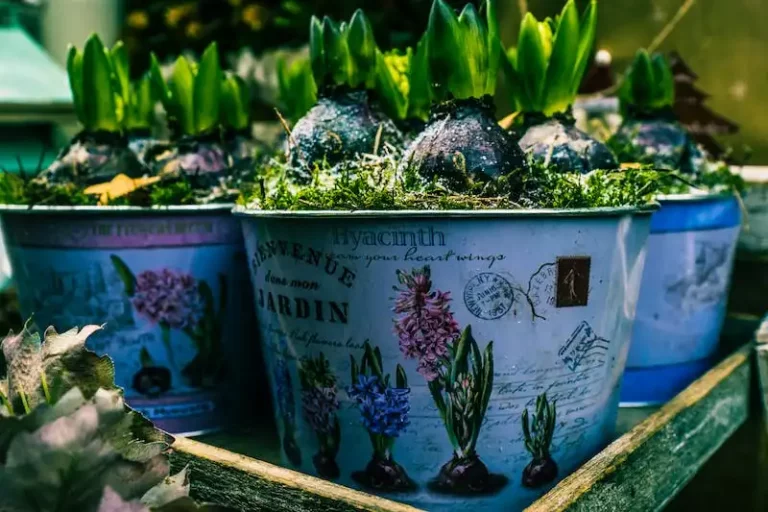Garden Trees, Shrubs & Vines
Morgan McCrory
The line between a zesty, well-tasting lemon and a bitter, poor-tasting lemon is a fine one, and it’s easy to cross when growing your own. Sure, you could salvage the bad batch by utilizing the juice as a cleaner, but it’s best not to lose the fruit’s versatility. The first step in saving the citrus is pinpointing the cause of the bad taste. For lemon trees, the most likely culprits are either nature-induced, such as pests, disease, or soil deficiencies, or gardener-induced, such as inadequate watering.
The fruit-bearing branches of lemon trees also have a tendency to grow from the wrong area of the trunk. Commercially-bought citrus trees are actually made of two separate parts. A small branch from a preferred variety, such as Eureka or Meyer lemon, is grafted onto the rootstock of another citrus plant. This allows for a better root system and, thus, a better tree. However, the fruit will only taste good if grown above the grafted area. If a branch sprouts from the rootstock and is allowed to reach full maturity, the harvested fruit will always taste worse. You can avoid this issue by locating the point where the two trees meet, known as the graft union, and pruning any sprouts below that area. These bad branches will likely have more thorns and different leaves than the good branches.
Growing better tasting lemons
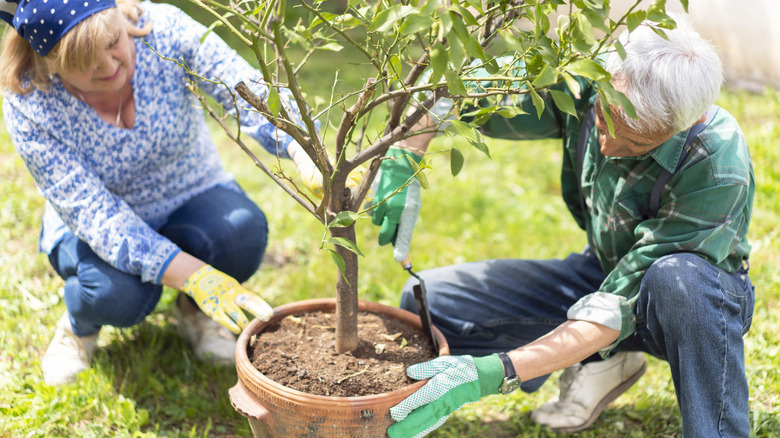
Srdjanpav/Getty Images
If a rootstock branch isn’t your problem, it’s time to work on the overall health of your lemon tree. Soil deficiencies and diseases are easily corrected or even avoided altogether with proper growing techniques. Lemon trees prefer soil that’s slightly acidic, so you’ll want to aim for a pH between 6 and 7.5. You’ll likely need to fertilize the soil, too, throughout the year. The tree will lose nutrients as it begins to produce fruit. You can help replace those nutrients by using a fertilizer specifically labeled as a citrus mix.
Whether you’re growing your lemons indoors or out in the yard, the tree needs a full six to eight hours of sunlight each day. It also needs a good amount of water, but the soil must drain well. Therefore, the use of mulch is not advised.
Pests are often inevitable, so you’ll want to keep a close eye on the leaves and fruit. If you notice signs of pests, try spraying a solution of water and horticultural oil on any mature foliage, as well as the trunk and various limbs. Canola oil, oddly, is also a good pest deterrent.

